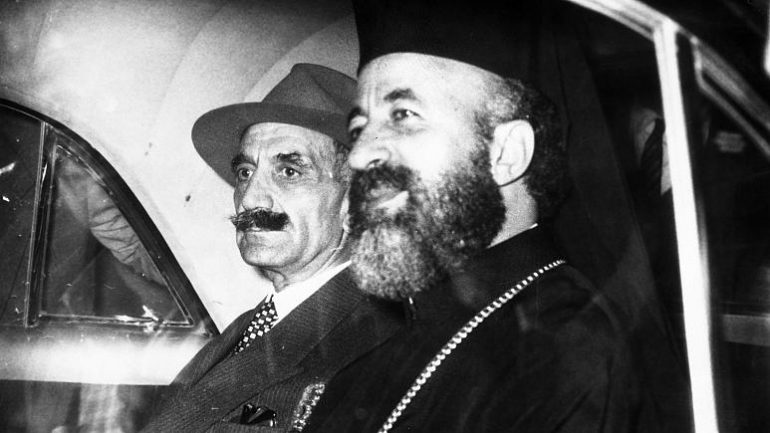On April 1, 1955, the Greek Cypriots revolted to shake off the British yoke, aiming at the "Union" with the motherland Greece. Their struggle ended with the "London-Zurich Accords" (February 19, 1959), by which Cyprus was declared an independent state.
The demand of the Greek Cypriots for the overthrow of the British occupation of Megalonisos and the union with Greece came to the fore in 1950, with the referendum of January 15 (organized by the Church of Cyprus and 95,7% of the voters were in favor of the union with Greece) and the election of Makarios III as Archbishop of Cyprus on October 20. It was a time when colonialism was blowing the whistle and one after another the conquered countries were vigorously seeking their independence.

The governments of Athens, at the urging of the Greek Cypriot leadership and under the pressure of the organizations of the Cyprus Struggle in Athens, made efforts to internationalize the issue, with successive appeals to the UN. On November 10, 1954, the retired colonel George "Digenis" Grivas (1897-1974) arrived on the island and formed the National Organization of Cypriot Fighters (EOKA), which on April 1, 1955 took action against the British colonialists, marking the beginning of the liberation struggle. of Cypriots. Born in Cyprus, Grivas had been an officer in the Greek army and during the German occupation he had founded the anti-communist organization "X", while he had taken an active part in the Civil War. The political leader of EOKA was Archbishop Makarios (1913-1977), later the first president of the Republic of Cyprus.

The fighting began in the evening hours of March 31 to April 1, 1955, with attacks on government buildings, police stations, the radio station, and a British camp in Famagusta. During the struggle, EOKA targeted the Greek Cypriot collaborators, the Turkish Cypriots of the "Taksim" organization who sought a "union" of Cyprus with Turkey, as well as AKEL members, who were "patriotic". EOKA accused them of being collaborators with the British. The dispute between the "right" and the "left" in Cyprus over the role of AKEL in the national liberation struggle lasts well to this day.

Despite the blood shed and the fighters who gave their lives (Karaolis, Dimitriou, Pallikaridis, Afxentiou, etc.), the goal of the "Union" was not achieved. With the London and Zurich Agreements (19 February 1959), Cyprus became an independent state on 1 October 1960.


But the problems continued with the British "sparking" tension on the island between Greek Cypriots and Turkish Cypriots that led to the events of 1964 and then in black July 1974 with the coup against Makarios and a few days later the Turkish invasion of the island that led in the bifurcation, which remains to this day.
Source: gr.euronews
